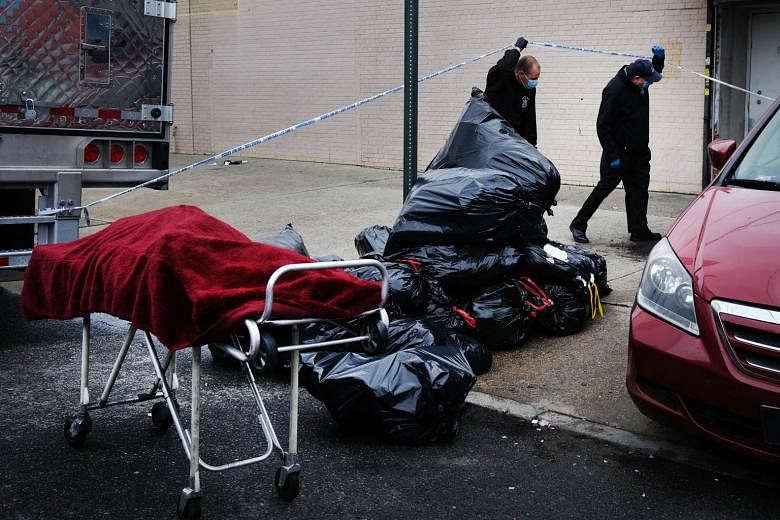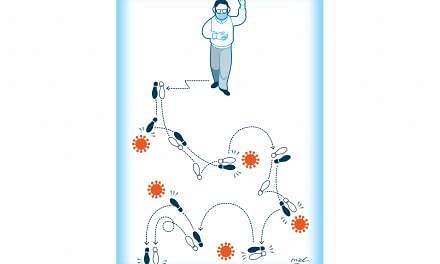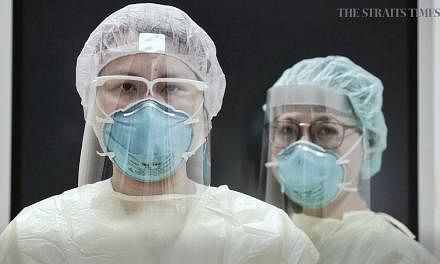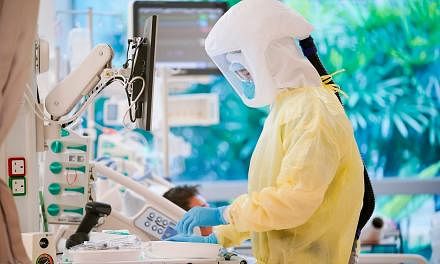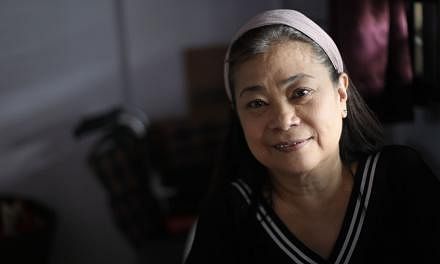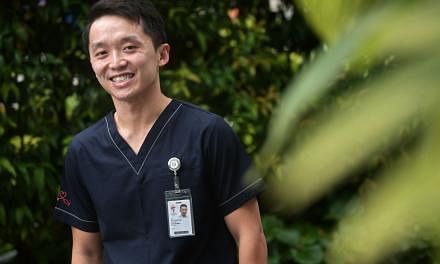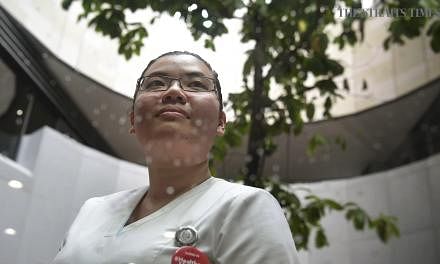When the first patient in the Chinese city of Wuhan came down with symptoms of a coronavirus infection late last year, no one could have foreseen the havoc the disease would wreak across the globe.
In a span of five months, the coronavirus has spread from China to almost every country in the world, killing more than 240,000 people, infecting more than 3.4 million, grinding economies to a halt and upending life as we know it.
The number of confirmed cases in the United States - which recorded its first infection on Jan 20 - has overtaken that of China in just two months, becoming the world's worst-hit nation and accounting for a third of all infections and a quarter of all deaths.
The global toll from the disease has far surpassed that of other deadly viral infections in recent history, such as the Middle East respiratory syndrome that killed 858 people and the severe acute respiratory syndrome that left 774 dead.
Healthcare systems around the world have been increasingly overwhelmed with their growing load of patients, many of them requiring intensive care and scarce medical equipment.
Governments are scrambling to obtain ventilators, surgical gowns, goggles, gloves and masks, as well as fast, accurate test kits, among other medical supplies now in severe shortage.
In some countries, morgues and funeral homes have been crammed as the number of fatalities rises. In Italy, coffins are running short, with caskets piled up in churches.
In Spain, an ice rink was converted into a makeshift morgue. Police in New York recently found dozens of decomposing bodies in unrefrigerated trucks outside an overwhelmed funeral parlour.
"So many arrived (in our hospital) that they were practically dying in our hands," a nurse in an Ecuadorian hospital told Agence France-Presse, describing the hospital's bathrooms as being filled with bodies "stacked up six or seven high".
COMBATING THE CORONAVIRUS
Strategies to curb the spread of the highly infectious disease include lessons gleaned from the 1918 Spanish flu pandemic that point to social distancing as the most effective method to interrupt the transmission of the virus.
Nations have implemented this to varying degrees, with most shutting international borders and severely limiting internal movement in a desperate bid to slow the rate of infection.
These measures have involved halting international travel, limiting public transport, shutting schools and workplaces, barring group activities, as well as banning concerts and sports matches, among other restrictions aimed at making people stay at home to avoid getting infected.
But the restrictions, while having some success in flattening the infection curve for several countries, have ground global economies to a halt, bankrupting airlines and other major businesses and sending unemployment spiralling.
Governments - already hard-pressed to control outbreaks - have to contend with devising unprecedented stimulus plans to keep their economies going and coming up with new measures to help society get back on track when the danger of the disease has passed.
Financial markets around the world have provided an indicator of people's sentiments and their expectations for economic recovery as the virus situation develops.
Global equities plunged into a bear market at the fastest pace ever in mid-March as the World Health Organisation declared a pandemic.

Many stock indexes have since recovered slightly as governments rushed out generous stimulus packages, but sentiment remains subdued as investors expect the pandemic's effects to last, with labour mobility impaired, supply lines crippled and some jobs lost forever.
With the global landscape looking so bleak and the number of infections still soaring, the search for a cure has become an international priority. Nearly all other scientific research has ground to a halt.
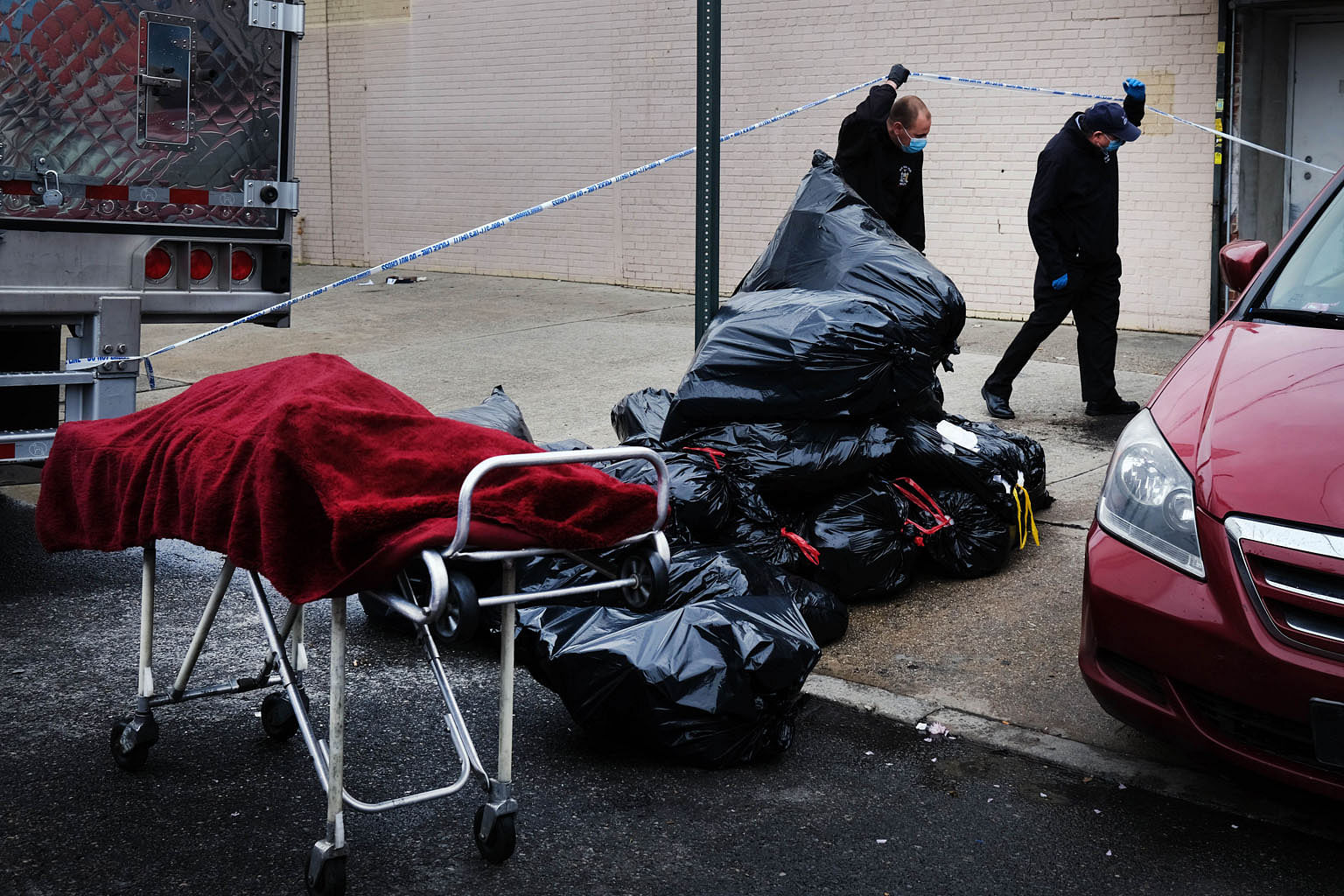
Doctors and scientists around the world are urgently working together to speed up the development of potential vaccines that normally take years, with hundreds under consideration.
"The ability to work collaboratively... is occurring right now because it's a matter of survival," Dr Ryan Carroll, a Harvard Medical School professor involved in the institute's coronavirus trial, told The New York Times.
NAVIGATING A WAY OUT
But with a potential cure for the coronavirus even by the most optimistic estimates still many months away, nations are now closely watching China - the original epicentre of the disease - for clues on how to navigate their way out of a lockdown and reopen economies in the absence of a vaccine.
China lifted its 76-day lockdown of Wuhan last month and relaxed domestic travel restrictions in Beijing last week, as its number of infections petered out.

China's measures to get its economy back on track involve cities across the country handing out more than six billion yuan (S$1.2 billion) in vouchers to spur consumption as businesses and industries sputter back to life.
In Hangzhou, Zhejiang province, for example, coupons led to more than 1.8 billion yuan in spending, 12 times more than the government subsidy, Bloomberg noted, citing data from Tencent Holdings.
Vouchers are more effective than cash in boosting consumption as they require a minimum spend.
Germany - among the first countries in Europe to be considered successful in controlling their outbreaks - has in recent days also eased its social distancing restrictions while making mask wearing in public compulsory in most states.
The country's practice of sending workers home during a downturn in exchange for job guarantees has been touted as a good fix to combat the pandemic's impact on its economy. The European economic powerhouse has also set aside a rescue package worth a whopping 60 per cent of its gross domestic product, including immediate fiscal stimulus, deferrals and other liquidity measures.
Ultimately, it seems that the richest, most developed nations may be the most able to weather the global crisis, keeping down death tolls and infection rates with the strongest medical care and contact-tracing systems while ensuring their economies continue running with the biggest stimulus packages.
Sociologists have raised concerns that the pandemic will worsen existing inequalities, sparking social unrest in the worst-hit regions and sending some already-struggling economies over the brink.
But some have also expressed hopes that the huge upheaval in our ways of life as a result of the crisis will help pave the way towards greater global unity and a more humane economy in the future.
"Even as there is no end in sight to Covid-19, discussions and works are already under way to reimagine the economies and societies of the post-pandemic future," cultural studies researcher Liew Kai Khiun told The Sunday Times.
"Having a historical perspective in this respect allows us to see pandemics not just as angels of death, but also as agents of change."
